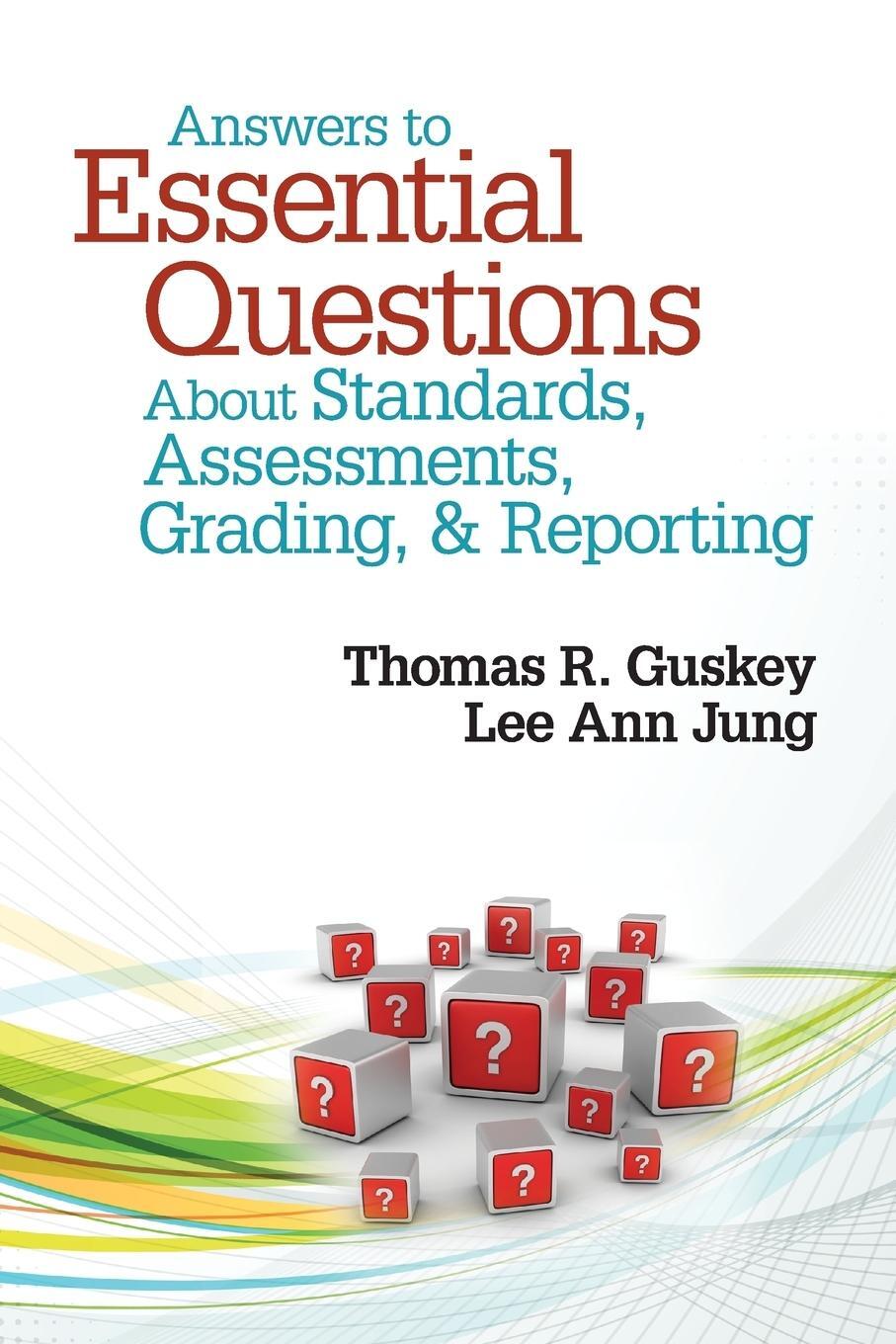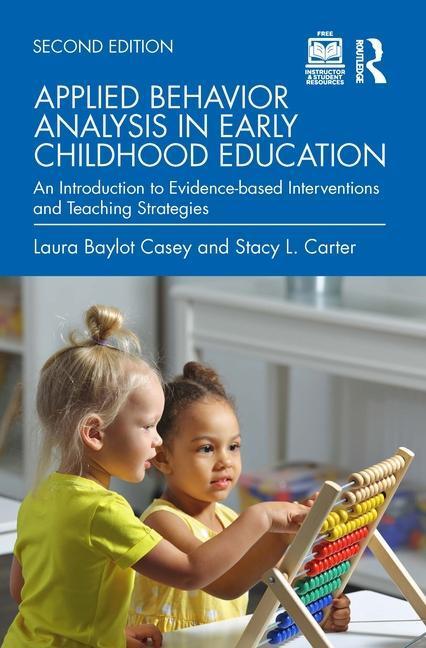Dekorationsartikel gehören nicht zum Leistungsumfang.
Sprache:
Englisch
38,65 €*
Versandkostenfrei per Post / DHL
Lieferzeit 1-2 Wochen
Kategorien:
Beschreibung
The definitive guidebook to the complex terrain of 21st-century standards!
Standards, assessments, grading, and reporting provide the foundation for nearly every initiative in modern education reform. But what do these
Standards, assessments, grading, and reporting provide the foundation for nearly every initiative in modern education reform. But what do these
The definitive guidebook to the complex terrain of 21st-century standards!
Standards, assessments, grading, and reporting provide the foundation for nearly every initiative in modern education reform. But what do these
Standards, assessments, grading, and reporting provide the foundation for nearly every initiative in modern education reform. But what do these
Über den Autor
Thomas R. Guskey, Ph.D., is professor of Educational Psychology at the University of Kentucky. Benjamin Bloom served as his advisor during his years of graduate study at the University of Chicago, as the director of his doctoral dissertation committee, and later as a colleague on several large-scale research projects.
Inhaltsverzeichnis
Acknowledgments
About the Authors
Preface: The Nature of Essential Questions
Part I: Standards
1. What are Standards?
2. Are Standards a New Idea in Education?
3. Why Do Some People Oppose Standards?
Part II: Assessments
4. What Is Assessment?
5. What Is the Difference Between Assessments and Tests?
6. What Is Formative Assessment?
7. Why Are Formative Assessments Important?
8. What Are Common Formative Assessments?
9. What Is Summative Assessment?
10. What Is High-Stakes Assessment?
11. What Are Instructionally Sensitive and Instructionally Insensitive Assessments?
12. How Do Assessments for Learning Differ From Assessments of Learning?
13. Do Formative Assessments Improve Student Learning?
Part III: Grading
14. What Are Grades?
15. What Is the Purpose of Grading?
16. Are Grades Essential to Teaching and Learning?
17. Why Are the First Grades Assigned So Important?
18. Do Low Grades Prompt Students to Try Harder?
19. Why Is Setting Percentage Cut-Offs for Grades an Arbitrary Process?
20. What Is Wrong With Grading on the Curve?
Part IV: Reporting
21. What Criteria Do Teachers Use in Assigning Grades?
22. What Is Standards-Based Grading and Reporting?
23. Why Do Some Parents Have Concerns About Standards-Based Grading and Reporting?
24. If Schools Implement Standards-Based Grading, Will the Grades Assigned to Students Likely Go Up or Down?
25. What Is the Most Important First Step in Implementing Standards-Based Grading?
26. What Is the Best Way to Inform Parents About Moving to Standards-Based Grading?
27. What Is the Best Way to Encourage Parents to Make Comments on the Report Card?
28. Will Standards-Based Grading Improve Student Learning?
Part V: Grading and Reporting for Exceptional and Struggling Learners
29. Who are Exceptional and Struggling Learners?
30. How Do We Assign Grades to Exceptional and Struggling Learners Who Require Modifications?
31. What Is the Difference Between Accommodations and Modifications?
32. How Do We Legally Report Grades for Exceptional and Struggling Learners on Report Cards and Transcripts?
33. Do High School Students Requiring Modifications Receive Course Credit Toward a Diploma? Do Modifications Make a Student Ineligible for Extracurricular Activities, Such as Interscholastic Athletics?
Summary and Conclusions
Index
About the Authors
Preface: The Nature of Essential Questions
Part I: Standards
1. What are Standards?
2. Are Standards a New Idea in Education?
3. Why Do Some People Oppose Standards?
Part II: Assessments
4. What Is Assessment?
5. What Is the Difference Between Assessments and Tests?
6. What Is Formative Assessment?
7. Why Are Formative Assessments Important?
8. What Are Common Formative Assessments?
9. What Is Summative Assessment?
10. What Is High-Stakes Assessment?
11. What Are Instructionally Sensitive and Instructionally Insensitive Assessments?
12. How Do Assessments for Learning Differ From Assessments of Learning?
13. Do Formative Assessments Improve Student Learning?
Part III: Grading
14. What Are Grades?
15. What Is the Purpose of Grading?
16. Are Grades Essential to Teaching and Learning?
17. Why Are the First Grades Assigned So Important?
18. Do Low Grades Prompt Students to Try Harder?
19. Why Is Setting Percentage Cut-Offs for Grades an Arbitrary Process?
20. What Is Wrong With Grading on the Curve?
Part IV: Reporting
21. What Criteria Do Teachers Use in Assigning Grades?
22. What Is Standards-Based Grading and Reporting?
23. Why Do Some Parents Have Concerns About Standards-Based Grading and Reporting?
24. If Schools Implement Standards-Based Grading, Will the Grades Assigned to Students Likely Go Up or Down?
25. What Is the Most Important First Step in Implementing Standards-Based Grading?
26. What Is the Best Way to Inform Parents About Moving to Standards-Based Grading?
27. What Is the Best Way to Encourage Parents to Make Comments on the Report Card?
28. Will Standards-Based Grading Improve Student Learning?
Part V: Grading and Reporting for Exceptional and Struggling Learners
29. Who are Exceptional and Struggling Learners?
30. How Do We Assign Grades to Exceptional and Struggling Learners Who Require Modifications?
31. What Is the Difference Between Accommodations and Modifications?
32. How Do We Legally Report Grades for Exceptional and Struggling Learners on Report Cards and Transcripts?
33. Do High School Students Requiring Modifications Receive Course Credit Toward a Diploma? Do Modifications Make a Student Ineligible for Extracurricular Activities, Such as Interscholastic Athletics?
Summary and Conclusions
Index
Details
| Erscheinungsjahr: | 2012 |
|---|---|
| Fachbereich: | Didaktik/Methodik/Schulpädagogik/Fachdidaktik |
| Genre: | Erziehung & Bildung |
| Rubrik: | Sozialwissenschaften |
| Medium: | Taschenbuch |
| Seiten: | 176 |
| Inhalt: | Kartoniert / Broschiert |
| ISBN-13: | 9781452235240 |
| ISBN-10: | 1452235244 |
| Sprache: | Englisch |
| Ausstattung / Beilage: | Paperback |
| Einband: | Kartoniert / Broschiert |
| Autor: |
Guskey, Thomas R.
Jung, Lee Ann |
| Hersteller: | Corwin |
| Maße: | 229 x 152 x 10 mm |
| Von/Mit: | Thomas R. Guskey (u. a.) |
| Erscheinungsdatum: | 21.11.2012 |
| Gewicht: | 0,265 kg |
Über den Autor
Thomas R. Guskey, Ph.D., is professor of Educational Psychology at the University of Kentucky. Benjamin Bloom served as his advisor during his years of graduate study at the University of Chicago, as the director of his doctoral dissertation committee, and later as a colleague on several large-scale research projects.
Inhaltsverzeichnis
Acknowledgments
About the Authors
Preface: The Nature of Essential Questions
Part I: Standards
1. What are Standards?
2. Are Standards a New Idea in Education?
3. Why Do Some People Oppose Standards?
Part II: Assessments
4. What Is Assessment?
5. What Is the Difference Between Assessments and Tests?
6. What Is Formative Assessment?
7. Why Are Formative Assessments Important?
8. What Are Common Formative Assessments?
9. What Is Summative Assessment?
10. What Is High-Stakes Assessment?
11. What Are Instructionally Sensitive and Instructionally Insensitive Assessments?
12. How Do Assessments for Learning Differ From Assessments of Learning?
13. Do Formative Assessments Improve Student Learning?
Part III: Grading
14. What Are Grades?
15. What Is the Purpose of Grading?
16. Are Grades Essential to Teaching and Learning?
17. Why Are the First Grades Assigned So Important?
18. Do Low Grades Prompt Students to Try Harder?
19. Why Is Setting Percentage Cut-Offs for Grades an Arbitrary Process?
20. What Is Wrong With Grading on the Curve?
Part IV: Reporting
21. What Criteria Do Teachers Use in Assigning Grades?
22. What Is Standards-Based Grading and Reporting?
23. Why Do Some Parents Have Concerns About Standards-Based Grading and Reporting?
24. If Schools Implement Standards-Based Grading, Will the Grades Assigned to Students Likely Go Up or Down?
25. What Is the Most Important First Step in Implementing Standards-Based Grading?
26. What Is the Best Way to Inform Parents About Moving to Standards-Based Grading?
27. What Is the Best Way to Encourage Parents to Make Comments on the Report Card?
28. Will Standards-Based Grading Improve Student Learning?
Part V: Grading and Reporting for Exceptional and Struggling Learners
29. Who are Exceptional and Struggling Learners?
30. How Do We Assign Grades to Exceptional and Struggling Learners Who Require Modifications?
31. What Is the Difference Between Accommodations and Modifications?
32. How Do We Legally Report Grades for Exceptional and Struggling Learners on Report Cards and Transcripts?
33. Do High School Students Requiring Modifications Receive Course Credit Toward a Diploma? Do Modifications Make a Student Ineligible for Extracurricular Activities, Such as Interscholastic Athletics?
Summary and Conclusions
Index
About the Authors
Preface: The Nature of Essential Questions
Part I: Standards
1. What are Standards?
2. Are Standards a New Idea in Education?
3. Why Do Some People Oppose Standards?
Part II: Assessments
4. What Is Assessment?
5. What Is the Difference Between Assessments and Tests?
6. What Is Formative Assessment?
7. Why Are Formative Assessments Important?
8. What Are Common Formative Assessments?
9. What Is Summative Assessment?
10. What Is High-Stakes Assessment?
11. What Are Instructionally Sensitive and Instructionally Insensitive Assessments?
12. How Do Assessments for Learning Differ From Assessments of Learning?
13. Do Formative Assessments Improve Student Learning?
Part III: Grading
14. What Are Grades?
15. What Is the Purpose of Grading?
16. Are Grades Essential to Teaching and Learning?
17. Why Are the First Grades Assigned So Important?
18. Do Low Grades Prompt Students to Try Harder?
19. Why Is Setting Percentage Cut-Offs for Grades an Arbitrary Process?
20. What Is Wrong With Grading on the Curve?
Part IV: Reporting
21. What Criteria Do Teachers Use in Assigning Grades?
22. What Is Standards-Based Grading and Reporting?
23. Why Do Some Parents Have Concerns About Standards-Based Grading and Reporting?
24. If Schools Implement Standards-Based Grading, Will the Grades Assigned to Students Likely Go Up or Down?
25. What Is the Most Important First Step in Implementing Standards-Based Grading?
26. What Is the Best Way to Inform Parents About Moving to Standards-Based Grading?
27. What Is the Best Way to Encourage Parents to Make Comments on the Report Card?
28. Will Standards-Based Grading Improve Student Learning?
Part V: Grading and Reporting for Exceptional and Struggling Learners
29. Who are Exceptional and Struggling Learners?
30. How Do We Assign Grades to Exceptional and Struggling Learners Who Require Modifications?
31. What Is the Difference Between Accommodations and Modifications?
32. How Do We Legally Report Grades for Exceptional and Struggling Learners on Report Cards and Transcripts?
33. Do High School Students Requiring Modifications Receive Course Credit Toward a Diploma? Do Modifications Make a Student Ineligible for Extracurricular Activities, Such as Interscholastic Athletics?
Summary and Conclusions
Index
Details
| Erscheinungsjahr: | 2012 |
|---|---|
| Fachbereich: | Didaktik/Methodik/Schulpädagogik/Fachdidaktik |
| Genre: | Erziehung & Bildung |
| Rubrik: | Sozialwissenschaften |
| Medium: | Taschenbuch |
| Seiten: | 176 |
| Inhalt: | Kartoniert / Broschiert |
| ISBN-13: | 9781452235240 |
| ISBN-10: | 1452235244 |
| Sprache: | Englisch |
| Ausstattung / Beilage: | Paperback |
| Einband: | Kartoniert / Broschiert |
| Autor: |
Guskey, Thomas R.
Jung, Lee Ann |
| Hersteller: | Corwin |
| Maße: | 229 x 152 x 10 mm |
| Von/Mit: | Thomas R. Guskey (u. a.) |
| Erscheinungsdatum: | 21.11.2012 |
| Gewicht: | 0,265 kg |
Warnhinweis



